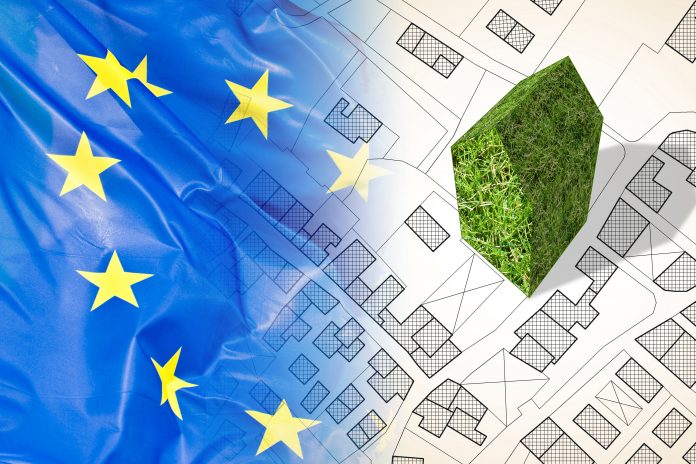Vice-President of the European Economic and Social Committee, Isabel Caño Aguilar, argues here that sustainability must be at the heart of Europe’s future
Global climate change is already having an observable and measurable impact on the environment and on societies. The effects predicated by scientists, such as longer head waves, longer frost-free seasons, accelerated sea-level rise and, consequently, biodiversity loss are already occurring:
- In Europe and around the world, we are facing environmental, social and economic pressures. Climate change and biodiversity loss threaten the very survival of civilisation. In 2018’s report of the Intergovernmental Platform on Biodiversity and Ecosystem Services (IPBES) warned that the health of the ecosystems on which we and all other species depend is deteriorating faster than ever and that the effects of climate change will potentially be irreversible if we do not take urgent action to reduce greenhouse gas emissions.
- In addition, nearly a quarter of our children and young people are at risk of poverty or living in poverty. Millions of young people cannot find employment to start shaping their adult lives.
- Moreover, fundamental values and rights are being challenged by nationalist and populist movements, calling into question the very foundations of the European Union (EU), with Brexit very likely to be a first dramatic consequence.
Finding solutions to the scale and urgency of local and global problems that threaten our model of society is the EU’s great challenge.
Sustainable development
At the European Economic and Social Committee (EESC), we are convinced that environmental, social and economic aspects must be included in all aspects of the decision-making process. At EU level, it also means that there is an urgent need to align all existing EU policies and budgetary/financial frameworks – including the financial support mechanism – with the Sustainable Development Goals (SDGs) and also to develop credible methods for assessing sustainability.
The European Commission’s discussion paper entitled Towards a Sustainable Europe by 2030 is an important step towards sustainable development, but we are concerned that the course it sets may not accelerate the pace of the transition to sustainability in Europe and the world. There is no more time to postpone, it is time for action!
However, despite the devastating facts, I feel that too many of our political leaders are still not able, or not willing enough, to offer concrete solutions to the threats we are facing. I am convinced that the transition from our current economies and lifestyles to sustainable ones is the right answer because we can never end poverty and build a more just society as long as we leave our planet at the mercy of exploitation!
It should not be forgotten that the EU is committed to implementing the SDGs and these 17 objectives should be the fundamental element of the EU’s strategy for the next decade and beyond. The implementation of SDGs has the potential to open new markets for companies that can provide innovative solutions for the transformation of our economy.
It is also an opportunity to eradicate energy poverty and dependence and improve quality of life, particularly in terms of health. However, there are also economic and social benefits, since the transition to a climate-neutral economy by 2030 is expected to create 1.2 million new jobs, in addition to the 12 million new jobs already forecast (source: ESDE report).
European Green Deal
The intention of the President-elect of the Commission, Ursula von der Leyen, to accelerate the transition to sustainable development in Europe through a European Green Deal led by a specialised Vice-President is certainly promising, but as representatives of civil society, we hope that nobody gets left behind! In order to make our economy sustainable, the focus must be on the well-being of people. This includes preserving a healthy environment and nature as well as preserving and creating decent and sustainable jobs. What we want is a just transition.
The proposed European Green Deal should, therefore, be a Green and Social Deal. The EU needs a strong social and employment policy. Since social and environmental inequalities are closely linked, the link between environmental and social policies needs to be further developed. In addition, we must move away from GDP growth as an indicator of wealth and instead include elements that measure individual and social well-being.
An interesting aspect that is worth mentioning is that many companies are actually ahead of policy. What they now need is a clear regulatory framework and legal certainty. In addition, it is important to create education and training programmes to ensure that current and future workers are well prepared for the transition.
Last but not least, Europe will not save the world on its own. The implementation of the SDGs is a common objective, but also a common necessity. In order to lead the transition to a sustainable economy, Europe must not only demonstrate that a truly sustainable economy also advances economic, social and environmental development, but we must also use our weight as the largest trading bloc and push globally for sustainable development and, thus, support the maintenance of global biodiversity and ecosystems.











